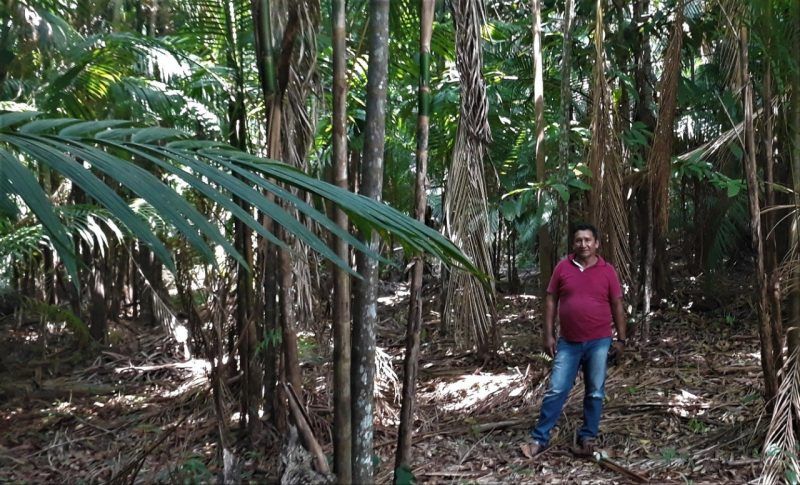Leopoldo Lopes de Sousa's daily routine follows the rhythm of the forest. He gets out of bed at sunrise, feeds the chickens and pigs, tends the fields where he plants cassava, maize, rice, and beans, and goes to sleep early. Leopoldo's main income comes from macaxeira (cassava) flour, a plant native to the Amazon and sold in cities after a journey that can take more than three hours by boat. With parents, grandparents, and great-grandparents born on the banks of the Tapajós River in Pará, Leopoldo knows the importance of the forest for subsistence. The forest is one's home, livelihood, market, and pharmacy all in one.
Read the full story in Portuguese on the Repórter Brasil website.
Resumen: Bolsa Verde auxiliou cerca de 76 mil famílias em condições de extrema pobreza em áreas protegidas da Amazônia, mas foi suspenso em 2017 sem aviso. Medidas do governo Bolsonaro ampliam pressão sobre quem protege a floresta.
Texto: O cotidiano de Leonaldo Lopes de Sousa segue o ritmo da floresta. Sai da cama junto com o sol, alimenta as galinhas e os porcos, cuida da roça onde planta mandioca, milho, arroz e feijão e dorme cedo, com o sono precipitado pelo cansaço. Seu principal sustento vem da farinha de macaxeira, planta nativa da Amazônia e vendida “na cidade” depois de uma viagem que pode levar mais de 3h de barco. Com pais, avós e bisavós nascidos ali, às margens do rio Tapajós, no Pará, Leonaldo sabe da importância de sobreviver da floresta mantendo-a de pé. A floresta é sua casa, seu sustento, seu mercado, sua farmácia.
